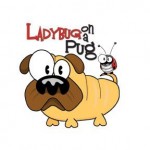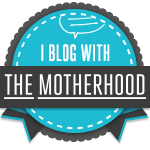Wrap – a wrap that has no clasps or rings, simply a piece of long cloth wrapped around your body and your baby. Wrap carriers offer many different positions for holding your baby at various ages.
pros:
- optimal head/neck support, essential for when baby falls asleep
- complete back support
- correct leg support, fabric can be stretched to the back of the knees to ensure proper sitting position
- legs flexed and abducted (froglike position)
- naturally tilts the pelvis, fills out the hip sockets, and aligns the spine
- clings to wearers body and to the contours of the baby
- fine tuning possible without retying in stretchy wraps
- no pressure points on carrier or on baby
cons:
- may have a slightly longer learning curve
- may not be as fast to throw on
- male partners may not be too enthusiastic about the wrapping process
- may be difficult to keep off the ground when tying outside (try tucking in your pockets!)
- back wearing is not safe and it is not recommended with stretchy wraps
- woven wraps have multiple holds and positions, but fabric may dig and not be as conforming as stretchy wraps
Sling – piece of fabric that goes over your shoulder to form a pouch to hold your baby .
pros:
- easy on and off
- ideal for quick errands
- can be worn in horizontal or upright position
- spine is supported in convex position
- provides the most discreet nursing (especially if the sling has a tail)
- babies weight isn’t evenly distributed on mom
- only goes over one shoulder, can give you lopsided feeling or exacerbate back or shoulder problems
- fitted or custom made slings do not grow with your baby
- may not fit your partner
- rings can be unpleasant and have been reported to break
- when you bend forward baby moves away from your body
- when baby gets bigger the bottom rail of fabric is sometimes unforgiving on little hamstring
- no back carry
Mei-Tai Baby Carrier – carrier has four straps coming off the body of the carrier, which can be tied to wear your baby on your front, back or hip.
pros:
- it is not bulky and can fit into a smaller purse sometimes
- simple design (easy DIY carrier)
- fits infant to toddler
- front and back holds possible
- easy to learn to use
- bilateral, goes over both shoulders evenly distributing babies weight
cons:
- may have no shoulder padding/usually has no waist padding which may cause digging or pinching
- no chest strap, although some straps are long enough so you can tie your own
- not ideal for newborns or smaller infants because of the open sides
- usually doesn’t provide adequate head support for sleeping infants
Soft Structured Baby Carrier – more like a backpack and are generally designed for older babies and toddlers to be worn on your body’s front, back or hip.
pros:
- easy on, easy off
- easy to learn
- back and hip support
- adjustable
- foam in shoulders and in waistband
- baby held close
- proper sitting position
- supports legs in flexed abducted (froglike) position
- naturally aligns hips, pelvis, and spine
cons:
- weight distribution mainly on waist and shoulders of carrier
- shoulder straps may dig
- may not adequately support legs of toddler
- doesn’t provide clinging contoured support for a newborn or infant
- nursing may not be as discreet as in a wrap or sling










